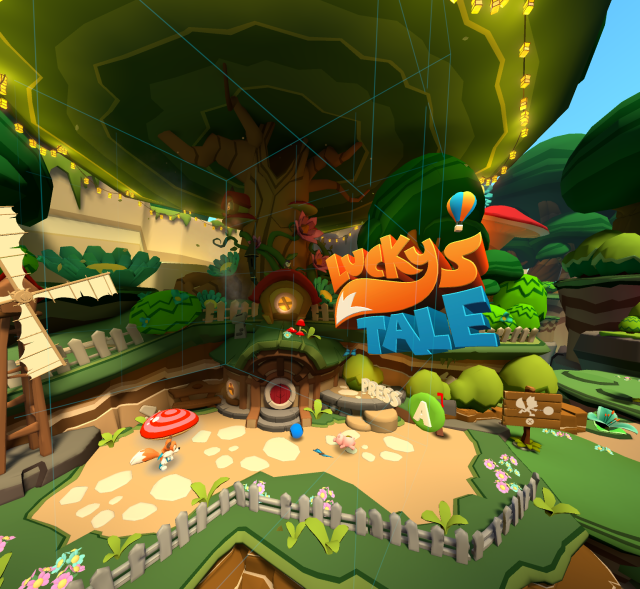
In the race to the top of virtual reality, Oculus and HTC have kicked off a hardware showdown the likes of which we haven't seen since the "Nintendon't" days. However, the war includes a curious compatibility issue: HTC's current software hub, SteamVR, can be accessible by Oculus headset wearers, but Oculus Home doesn't currently support the HTC Vive.
Oculus founder Palmer Luckey has publicly stated that "we can only extend our SDK to work with other headsets if the manufacturer allows us to do so," seemingly passing the buck to HTC and Valve in regard to why its Oculus Store games don't natively support the other leading PC headset. Valve has denied this assertion. Either way, we no longer have to wait for the companies to settle their legal and licensing differences, thanks to the efforts of the LibreVR plugin, dubbed Revive.
Short version: it works, as proven by the above screenshot we snapped of pack-in Oculus game Lucky's Tale running within the SteamVR interface (complete with its "chaperone" boundary lines). The author's test system, which includes a 4.2 GHz i7 processor and a GTX 980Ti, ran all test games without hitches in performance, while other users have reported similarly smooth performance on "VR-ready" Windows 10 PCs.
Be warned: once the software in question has been patched, it still requires Oculus runtimes to be running in the background on your computer. The apps will still work if you put your computer or the background runtimes into offline mode, but otherwise, that hitch means these patches aren't a quick-fix for privacy-minded VR users worried about Oculus' Facebook-like EULA.
Will Facebook respond with a “sad” button?
The patch's author states that this works by "reimplementing functions from the Oculus Runtime and translating them to OpenVR calls." However, games and apps from the Oculus Home hub include a code-signing check, which is why a full-blown EXE patch is required—which may very well violate the Oculus Home EULA to use. The instructions at GitHub spell out how to patch Lucky's Tale, which was built in the Unity engine, along with the Oculus Dreamdeck experiential app, which was built in Unreal.
Thanks to their separate engines, these games have different steps to becoming Vive-compatible, and as users have reported, these patches can currently be applied to other Oculus Store games and apps built in Unity and Unreal by following the same steps for their respective executables. We managed to get other games and apps working with the patch ourselves, though controller support varies. In some cases, any XInput controller will suffice, while in others, you'll need an Xbox One pad. In one cinematic app's case, controllers didn't work at all.
By the way, the games we tested, including Oculus launch breakout Lucky's Tale, are free to any Oculus Home installer, which Luckey and company must have assumed would only be used by paying Oculus Rift owners. Whether or not this patch changes those titles' free status remains to be seen, but for now, HTC Vive owners have a free, simple way to access some of Oculus' most impressive launch offerings.When asked questions about this newfound way to patch Oculus games, an Oculus representative told Ars by e-mail, “I will get back to you if we decide to respond."
Update, 4/14 3:05 p.m. EDT: Oculus has since reached out to Ars Technica with a response to our report: "This is a hack, and we don’t condone it. Users should expect that hacked games won’t work indefinitely, as regular software updates to games, apps, and our platform are likely to break hacked software."
reader comments
83